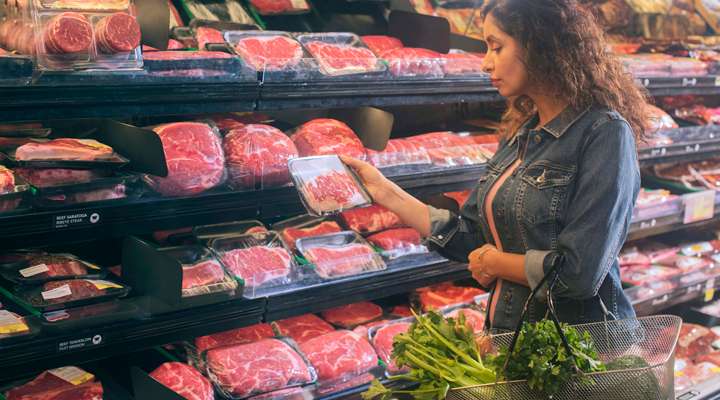
MANHATTAN – In what can sometimes feels like a sea of adversity, there are reasons for optimism in the food industry during the global pandemic caused by the new coronavirus.
“With COVID-19, there are so many unfortunate things that have happened, but one bright spot is that there is really an awareness now of the importance of not wasting food, and a new understanding of the complexity of the food chain,” said Jeanette Thurston, director of the Kansas State University Food Science Institute.
Thurston was one of two guests on a recent episode of the Beef Cattle Institute’s weekly Cattle Chat podcast talking about the changing habits of consumers. Also joining the podcast was Patti Dollarhide, BCI’s value chain alliance director as well as agricultural economist Dustin Pendell, beef extension specialist Bob Weaber, and veterinarians Bob Larson and Brad White.
“Right now, I shop at the grocery store once every two weeks, so the shelf-life of the food products is important to me,” Thurston said, adding she appreciates the extra time that shopping for food online provides her and it is something she expects to continue after the pandemic is over.
To extend shelf-life, Thurston encouraged consumers to incorporate more frozen and pre-packaged items in their meal plans.
Dollarhide said consumers are adopting many habits that dieticians have suggested for years.
“Taking a shopping list to the store with you and paying attention to the food’s nutritional benefits are some ways to avoid impulse buys and eat healthier,” she said.
Several of those on the podcast said they are experimenting with different cuts of meat on the grill and in their kitchens. “This is a time when people are trying to prepare less expensive cuts of meat,” Pendell said.
Weaber added: “This is an opportunity for people to get more creative and thoughtful about their meal plan.”
And Dollarhide said beef is an easy product to repurpose for another meal. “Beef doesn’t have to always be center of the plate; consumers can have (planned leftovers) that let them incorporate beef into another meal,” she said.
As strains on the supply chain have been exposed due to COVID-19 related sickness, Dollarhide said an increasing number of consumers want to make food purchases straight from the farm.
“Shop Kansas Farms is an example of how producers are connecting directly with consumers and there is a chance to give them insight into the food supply chain,” she said. Shop Kansas Farms is a Facebook group that connects farmers with buyers from across the state.
“This really is giving those involved in agriculture a great opportunity to connect with consumers.”





